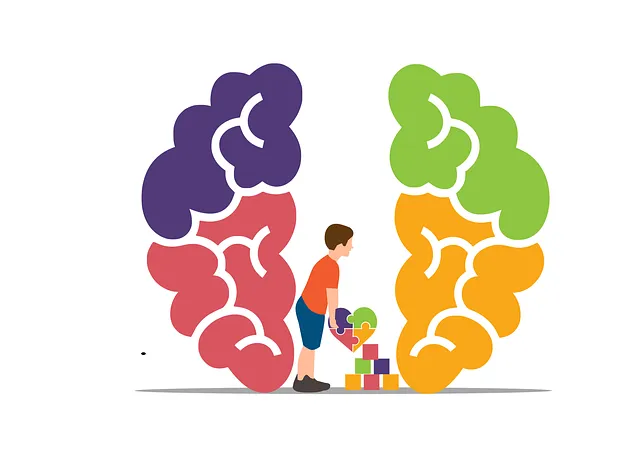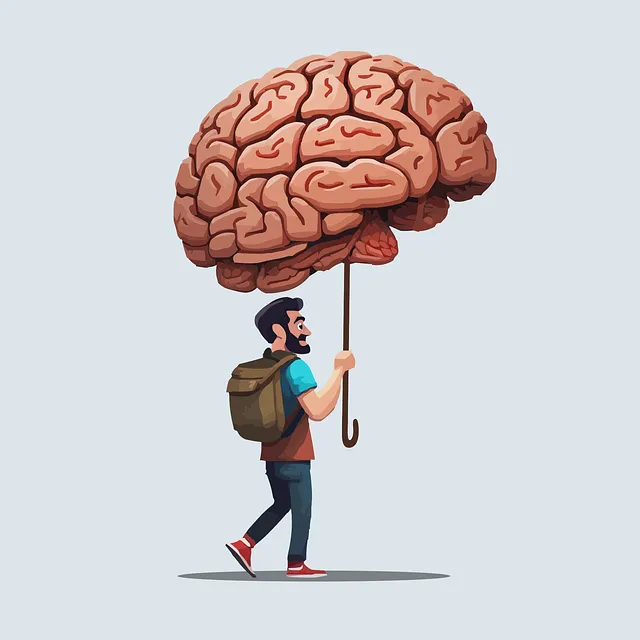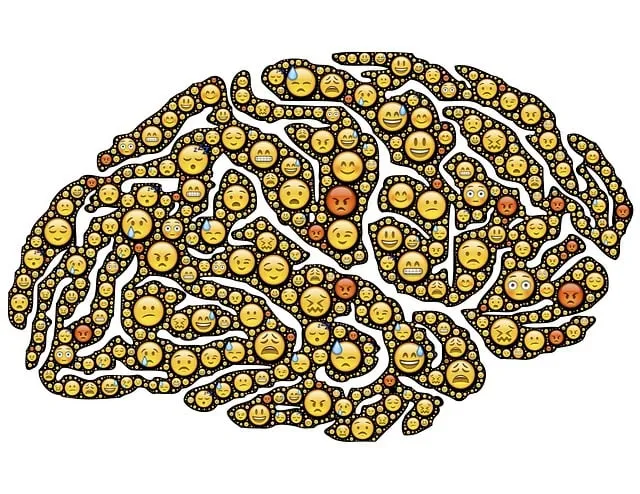The Broomfield Kaiser Permanente mental health center by owner champions Emotional Intelligence (EI) as a cornerstone for personal and professional growth, emphasizing its vital role in enhancing well-being, communication, and relationships. Through interactive programs focusing on EQ development, the center integrates diverse social skills training and empathy-building strategies to improve mental health outcomes and cultivate a more emotionally intelligent community. Key initiatives include mindfulness practices, self-awareness exercises, effective communication techniques, and empathy cultivation, all aimed at fostering resilience, compassion, and safe, ethical care in both personal and professional spheres.
Emotional intelligence (EQ) is a powerful tool for personal and professional growth, enabling individuals to navigate complex social landscapes with grace and understanding. In this article, we explore the transformative potential of EQ through three key sections. First, we delve into the definition and significance of emotional intelligence, highlighting its role in unlocking personal potential. Next, we present the innovative approach of the Broomfield Kaiser Permanente Mental Health Center in fostering EQ development. Lastly, we break down essential components and practical strategies for enhancing self-awareness and empathy, skills that form the cornerstone of emotional intelligence.
- Understanding Emotional Intelligence: Unlocking Its Potential
- The Broomfield Kaiser Permanente Mental Health Center's Approach to EQ Development
- Key Components of Building Emotional Intelligence
- Strategies for Enhancing Self-Awareness: A Cornerstone of EQ
- Practicing Empathy and Social Skills for Better Relationships
Understanding Emotional Intelligence: Unlocking Its Potential

Emotional intelligence (EI) is a powerful tool for personal growth and professional success. At Broomfield Kaiser Permanente mental health center by owner, we recognize its profound impact on overall well-being and effective communication. EI involves recognizing, understanding, and managing one’s own emotions, as well as empathizing with others’ feelings. This ability to connect emotionally fosters stronger relationships, enhances leadership skills, and promotes better decision-making.
By cultivating emotional intelligence, individuals can navigate complex interpersonal situations with grace and sensitivity. It encourages cultural awareness in mental healthcare practice, where understanding diverse backgrounds and perspectives is key to providing inclusive and effective treatment. Moreover, EI serves as a shield against burnout prevention, enabling professionals to maintain resilience and compassion in their work. Mind Over Matter principles emphasize the power of thoughts and emotions in shaping our reality, underscoring the importance of emotional intelligence in achieving optimal mental health and fulfillment.
The Broomfield Kaiser Permanente Mental Health Center's Approach to EQ Development

The Broomfield Kaiser Permanente Mental Health Center stands out for its owner-designed programs aimed at enhancing emotional intelligence (EQ) development. Recognizing that mental health and EQ are intricately linked, the center has tailored its approach to cater to diverse individual needs. Their innovative Mental Health Education Programs Design incorporates interactive workshops and group discussions, fostering an environment conducive to learning and self-discovery.
The center’s success lies in integrating various Social Skills Training methodologies and Empathy Building Strategies. By encouraging open communication and active listening, these strategies enable individuals to better understand themselves and others. Through these comprehensive initiatives, the Broomfield Kaiser Permanente Mental Health Center is not only improving mental health outcomes but also cultivating a more emotionally intelligent community.
Key Components of Building Emotional Intelligence

Emotional intelligence building is a multifaceted process that involves recognizing and managing one’s own emotions, as well as understanding and empathizing with others’ feelings. The Broomfield Kaiser Permanente mental health center by owner emphasizes the importance of this skill set in providing effective care. Key components include cultivating compassion, which fosters deeper connections and enhances patient outcomes. Practices such as mindfulness and emotional awareness training, often incorporated into Compassion Cultivation Programs, help individuals stay grounded and responsive to their own and others’ emotions.
Additionally, risk assessment and management planning for mental health professionals are crucial aspects of emotional intelligence development. The Risk Assessment for Mental Health Professionals and subsequent Risk Management Planning ensure that practitioners can navigate challenging situations safely and ethically, maintaining professional boundaries while providing compassionate care. These strategies not only protect both the professional and their clients but also foster a healthier work environment where emotional intelligence is prioritized and continuously honed.
Strategies for Enhancing Self-Awareness: A Cornerstone of EQ

Developing self-awareness is a powerful strategy for enhancing emotional intelligence (EQ). At the Broomfield Kaiser Permanente mental health center by owner, experts emphasize that understanding your emotions and how they impact your thoughts and behaviors is a cornerstone of EQ growth. This involves recognizing both your strengths and areas for improvement. By practicing mindfulness techniques, such as meditation or journaling, individuals can better identify their emotional triggers and patterns, fostering a deeper sense of self-awareness.
Additionally, effective communication strategies play a pivotal role in promoting emotional well-being. Engaging in open and honest dialogue allows individuals to express their feelings, needs, and concerns openly. Self-esteem improvement is another critical aspect, as boosting confidence enables better management of emotions and enhances overall EQ. Techniques like cognitive reframing and positive self-talk can significantly contribute to this process.
Practicing Empathy and Social Skills for Better Relationships

Practicing empathy and honing social skills are essential components of emotional intelligence development, as recommended by the Broomfield Kaiser Permanente mental health center by its owner. Building strong connections with others involves understanding and sharing their feelings, a cornerstone of effective communication. This skill set fosters deeper relationships, whether personal or professional, enabling individuals to navigate complex interpersonal dynamics with grace.
At the core of this process is the ability to actively listen, which forms a bridge between people. By engaging in open dialogue, individuals can learn to recognize and respond appropriately to others’ emotions. This not only enhances social interactions but also serves as a powerful tool for stress management, as it encourages emotional regulation and self-esteem improvement within workshops organized by Stress Management Workshops Organization.
Emotional intelligence, a key factor in personal and professional success, can be cultivated through various strategies. As demonstrated by the innovative programs at the Broomfield Kaiser Permanente Mental Health Center, enhancing self-awareness and practicing empathy are foundational to developing EQ. By integrating these skills, individuals can improve their relationships, make better decisions, and navigate life’s challenges with greater resilience. This article has explored essential components of emotional intelligence building, offering valuable insights for anyone seeking to unlock their full potential.






